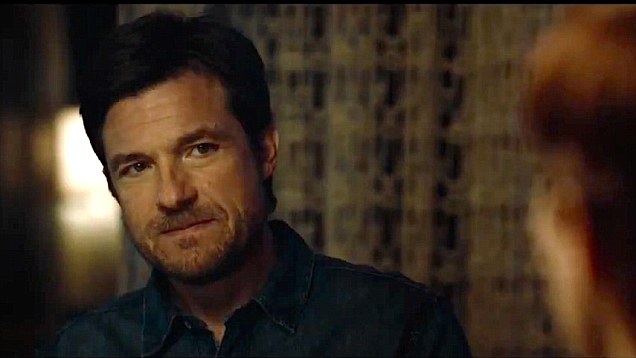Genre: Drama
Premise: After a plane crash, a man who lost his wife and daughter in the accident hunts down the flight controller responsible.
About: This is a really hot spec that went out recently from the writer of “Enemy.” Fox was so impressed by it, they hired the writer, Javier Gullon, to adapt a recent novel they purchased, The Dark Side. That book is set in the future where the moon is used as a penal colony, and a detective is called in to investigate the murderous rampage of a robot. “478” quickly got Arnold Scwarzeneggger attached and Darren Aronofsky to come on as producer. The Aronofsky attachment is interesting as you may remember Aronofsky briefly being attached to “Moonfall” last year, a Black List script which was famously pitched as “Fargo on the moon” (it wasn’t that at all, by the way). Aronofsky being attached to a project (478) so closely linked to another “murder on the moon” project (The Dark Side) makes you wonder if Aronofsky is getting moon movie fever. Might we see an Aronofsky moon murder film yet?
Writer: Javier Gullon
Details: 95 pages – Nov. 2014 draft
In case you haven’t noticed, one of the themes I’ve been pushing lately is TRUTH. I read so many screenplays – particularly from amateurs – where the writer isn’t being truthful with his choices.
Even if it’s clear that people would NEVER do this sort of thing in real life, the writer figures that if it works for their story, they’re going to include it.
The poster child for false choices is, of course, when the babysitter hears a noise upstairs and goes to check it out. Yeah, it’s better, entertainment-wise, if the babysitter goes and checks out the noise. But if we know that would never happen in real life, we call bullshit. Which is why you rarely see this happen anymore unless there’s a truthful reason behind it (if the baby is upstairs and therefore it’s paramount to make sure he’s safe).
Even yesterday’s script, The Gift, violated this code. There’s no way Robyn, the wife, would’ve been so inviting to this creepy weirdo. It was clear that the man had a few screws loose and was potentially dangerous. Yet, because keeping him around was the more entertaining option, Edgerton opted to “cheat” the Robyn character and make her more accepting of Gordo than the real-life version of Robyn would have been.
However, today’s script taught me the flip side to the “truth” argument. What if you’re TOO truthful? What if you become so enslaved to the truth, you consistently pass over much more entertaining choices? That was my issue with 478. There’s no doubt the script portrays things the way they would REALLY happen. But that’s the problem. The way things really happen is often boring.
44 year-old Viktor is a construction contractor. After a particularly long day of work, he heads to the airport to pick up his wife and daughter, who are flying in from Russia to permanently live with him in America.
When he gets there, he’s ushered into a private room, where he’s told that two planes have collided, and that there are no survivors. And, oh yeah, one of those planes was carrying his wife and daughter.
The next few days are hell for Viktor, who ends up volunteering for clean-up at the crash site. Amazingly, he stumbles across his daughter’s pearl necklace, which becomes a media symbol for the tragic event.
After trying to get therapy and heal properly, Viktor can’t stop thinking about the man responsible for the crash, the traffic controller. So he goes on a road trip to find and kill him.
The second half of the script takes us back to the day of the crash, this time from the perspective of Paul, the flight controller. We observe a number of unavoidable mistakes in the room which would eventually cause the crash.
We then follow Paul back home, where his wife and son try to deal with the aftermath. They routinely wake up to people painting shit like “Murderer” on their front door.
Eventually, Paul’s wife thinks it best if her and their son move out. This sends Paul into a spiral where he changes his name and moves to another state to start over. But then, 478 days later, there’s a knock on his door. It’s Viktor. He wants to settle the score. And he’s not leaving until he does.
So the “truth” I was referring to earlier refers to the fact that this script is played as straight as it gets. There are no shocking twists (someone sabotaged Paul’s computer right before the crash!). It’s: Dude sort of fucked up. People died. No one’s happy about it.
I mean we know where this is all going by page 20. Viktor’s going to kill Paul. And I suppose there’s an element of suspense to that – we’re eager to see how that goes down. But not really, since we already know how it’ll end. You can tell this isn’t the kind of script where Viktor overcomes some flaw and realizes that killing Paul won’t fill the void in his heart. No. Viktor is miserable. He will be miserable for the rest of his life. And killing Paul will make that misery a teensy bit easier to manage.
While I’m not saying this needed some fancy twist, it definitely needed… something. Some sort of dramatic element to give some life to the story. It was so freaking straight-forward. There isn’t even a lesson to learn here. It’s not like Paul was drinking on the job that day (like the Denzel Washington film, “Flight”). Or was being negligent. He was just a little distracted due to his partner leaving the room. There’s nothing he could’ve done differently. And therefore, there’s nothing for him to come to terms with, to “learn” about himself.
Yesterday I remarked how The Gift used the plot point of the husband becoming a villain to fuel the second half of the screenplay. We didn’t get anything like that there. The people who are miserable on page 20 are the same people who are miserable on page 90. There’s nothing, like that film, that helps us see the story any differently.
We did switch perspectives to Paul, which was somewhat of a change. The problem was, Paul was no different than Viktor. They were both miserable guys whose lives were spiraling out of control due to depression.
So if there’s a lesson to be learned from 478 – it’s that “truth” is important up to a certain point. You still need to add drama to your story. You still need to entertain. And if that means adding an exciting plot choice that probably wouldn’t happen in real life, well, you have to consider it. Because, in the end, nobody’s going to give a shit about your story unless they’re being entertained by it.
You still want to be as truthful as possible. But I realize I’d rather be entertained by a lie than bored by the truth.
[ ] what the hell did I just read?
[x] wasn’t for me
[ ] worth the read
[ ] impressive
[ ] genius
What I learned: Real life is pretty boring. Therefore, if you try and follow it to the letter, your script’s probably going to be boring as well. Take some dramatic license, add a few fun plot points, and never forget to entertain us, even if you have to fudge reality a bit to do so.
Genre: Thriller
Premise: A newly married couple move back to the husband’s home town, where they run into his old high school classmate, a strange man who used to be known as “Weirdo.”
About: Australian actor Joel Edgerton clearly has bigger plans for his career than just preening for the camera. Edgerton wrote, directed, and starred in today’s script, which hits theaters in a couple of weeks. Because this is a contained low-budget thriller (and sort of horror), it is of course produced by Jason Blum. If you want to know how to get Blum to buy YOUR script, well, I can’t give you a definitive answer. But I can tell you why he responded to this script: “I was very compelled by this notion of, you slight someone in the past and you think they’ve forgotten—and they haven’t. And I really like the idea that the way that person may, or may not, be getting revenge is by giving you a series of gifts that start off nice and grow meaner and meaner and meaner. I thought those were very relatable things.” Notice how Blum’s responding to the “concept” nature of the pitch. The “gift” part. That’s how he realized he could market this. Which is why, not surprisingly, he had the title changed from “Weirdo” to “The Gift.”
Writer: Joel Edgerton
Details: 115 pages (May 2014 draft)
They just don’t make these films anymore, do they? It used to be that a good thriller would fetch an A-list star and ensure a 2000 screen release. But now, unless the idea is incredibly clever (Gone Girl) or somehow fetches a great director (Gone Girl), these films go straight to Digital. Like the 2014 film, The Guest. Solid movie. But went straight to Itunes.
And it’s too bad. Because I miss these films. They’re a nice vacation from Fancy Capes McGuillicuty and his band of merry freak friends releases (Avengers 1&2).
And I have a theory why they’re disappearing which I’ll share with you after the plot breakdown but the good news is, it looks like “The Gift” (“Weirdo”) is one of those rare thrillers that’s getting a wide release. Or, at least, I just saw a giant billboard promoting it, which would suggest it’s getting a wide release. So there must be something special going on here, right?
“Weirdo” begins when recently married couple Simon and Robyn move into a new home back in Simon’s old town. While the two are out furniture shopping, they bump into Gordo, an old classmate of Simon’s from high school.
Gordo seems excited to see Simon but something in Simon’s reserved reaction tells us there’s more to this story. In the following weeks, Gordo keeps finding reasons to stop by, and while Robyn finds it endearing, Simon is pissed. Especially when Gordo starts stopping by when he’s at work.
It isn’t long before Simon’s had enough, and tells Gordo that they don’t want him around anymore. But his absence only seems to create more stress. Robyn becomes convinced that, because they upset Gordo, he’s going to do something bad.
Eventually, Robyn learns that Simon’s not telling her everything about what happened back in high school. Apparently, Gordo was caught having sex in a car with an older man, and the fallout led to everyone making fun of him and him having to leave school.
At least, that’s the story told at first. The more Robyn looks into this, the more she realizes it may not be Gordo she should fear. It may be the man she shares her home with.
So here’s the conversation I’ve been having with a lot of writers lately – writers who are trying to figure out what to write about. Movies are becoming more and more about “moving” than they ever have before.
The barrier for entry on your average weekend film is getting larger and larger. Films need to look more impressive than ever before. They have to look bigger than they have in the past. They have to be flashier.
And the key ingredient to creating all of these things? – MOVEMENT.
We need to see a lot of movement on screen. Moving from location to location. Characters moving from one place to another. Moving in cars. Moving in action scenes. There has to be a sense of movement on the screen. And this is always how movies have looked best. But you used to be able to get by with more stillness in film. Nowadays, it’s tough.
If you have a trailer where shot after shot is people standing around, it looks like not a lot is happening. And many people equate that with boredom. Some trigger goes off in their head that says, “Movie I’d rent. But not go see in the theater.”
The lone exception to this seems to be the horror film. And the reason the horror film can survive in this environment is because the writer has the power of fear on his side. He can create fear – one of the most powerful emotions an audience can have – in the smallest and stillest of venues. And actually, it seems like the smaller the room, the scarier things get. In that way, the stillness, the limited locations, actually aid the movie.
But the contained (or low-budget) thriller isn’t exactly horror. It’s a form of horror, but it lacks those big scares that only a horror film can provide. And that’s why these films are getting marginalized. That’s why they’re getting sent straight to video. The Gift seems to be one of the few films who have maneuvered around this pitfall.
So how was it? Well, the danger when you’re writing a script like this is: Is there enough in the tank? Do you just have a scary guy coming around and being scary and that’s it? Because if that’s the case, we’re going to be bored by the midpoint.
You need to find an extra gear – one more big plot point – to get an idea like this to the finish line. And while Weirdo’s plot point isn’t a slam dunk, it’s good enough to finish the race.
What is that plot point? We need to get into spoilers to broach it so avert your eyes if you don’t want to know. The coup of this script is that Edgerton makes us start questioning who the real “weirdo” is.
About 3/5 of the way into the story, Robyn begins to realize that her husband isn’t telling her the whole story about what happened to Gordo. And this does two things from a storytelling standpoint. First, it creates a mystery we want the answer to. We want to know what happened to Gordo. And second, it makes us start questioning Simon. Is he the real danger here?
So it’s kind of cool because the first half of the script creates this “impending sense of doom” around the character of Gordo. And the second half creates an “impending sense of doom” around Simon. If they only would’ve stayed with the first of these characters, I don’t think the script could’ve lasted. Trying to ride one single fear through an entire movie is hard to do.
This is actually the problem The Guest had. Cause it was kind of the same situation. A guy moves in with this family who we feel is dangerous. And that’s really cool on page 15. But it gets kind of stale by page 85. He was just more crazy than he was earlier.
So while Weirdo wasn’t perfect, that story choice made it a movie. It’ll be interesting to see how the film does because it truly is a “still” type movie. And without that straight-horror tag, that’s going to be a hard sell. We’ll have to see.
[ ] what the hell did I just read?
[ ] wasn’t for me
[x] worth the read
[ ] impressive
[ ] genius
What I learned: Always pay attention when an actor writes a role for him/herself. It gives you direct insight into what kinds of characters actors want to play. Which here is someone scary, unpredictable, and a little bit crazy – all things that allow an actor to display their acting chops.
What I learned 2: For British and Australian writers, there are no “queues” in the United States. Only lines! I bring this up only because I see it a lot. And I don’t mind it if the movie is set in Australia or Britain. But if you’re going to set it in the U.S., make sure it’s a line!
Ant-Man is the riskiest studio bet of the year. Did its rocky development process ultimately doom it? Or did the little superhero film that could pull off a cinematic miracle?
Genre: Action/Heist/Super-hero
Premise: A high-profile burglar is recruited by a famous scientist to break into his old company utilizing a cutting-edge shrinking technology.
About: When newly-formed Marvel Studios came up with their game plan (create an interconnected universe of movies just like they’d done with their comic books), Hollywood laughed. And why wouldn’t they? The town is infamous for ignoring any model outside of the ones they’ve carefully cultivated themselves. Boy were they thrown when the prodco then rode their model to become the most successful in the business. But even the biggest Marvel supporters did a double George Takei when the caped company announced they’d be making a film about Ant-Man. The character seemed to embody the opposite of what made super-hero characters so cool (being big, strong, having powers, not talking to ants). So putting 130 million dollars into a super-hero version of “Honey, I Shrunk the Kids,” seemed about as smart as casting Rick Moranis as Thor. Complicating the matter even further, geek superstar director Edgar Wright (Shaun of the Dead, Scott Pilgrim vs. The World), who had been developing the movie for ten years, was axed by Marvel Don, Kevin Feige, at the last second. Rumors were that Wright’s vision of the story was too weird and wouldn’t fit into the Marvel universe. He was replaced by a director with only slightly more notoriety than your average craft services table – Payton Reed. This coincided with comedy writer Adam McKay (Step-Brothers, Anchorman) coming in to rewrite the script with the star of the film, Paul Rudd. All of a sudden, the industry wondered whether Will Ferrell would be playing the film’s villain, More Cowbell. While the movie didn’t do typical Marvel-like numbers, it made a respectable 57 million dollars this weekend, and introduced the world to one of the more unique super-heroes in Marvel’s antsenal.
Writers: Edgar Wright & Joe Cornish and Adam McKay & Paul Rudd. Story by Edgar Wright & Joe Cornish. Based on the comic book character created by Stan Lee & Larry Lieber & Jack Kirby
Details: 110 minutes
Ant-Man may seem like a tiny movie in the grand scheme of things, but there’s actually a lot to learn from the film and its much-publicized development. The biggest thing I took away from it was how hard it is to do something different in this business.
As I’ve been saying for awhile now, if superhero movies are going to survive, they’ll need to evolve. We’re getting to the point where a new super-hero film is coming out every month. It’s only a matter of time before the Marvel methane bubble bursts.
That’s why Feige is introducing a character like Ant-Man. It’s why DC decided to make Suicide Squad. It’s why we’re getting a foul-mouthed vigilante super-hero in Deadpool. It’s why Warners feels they need to put both of their prime-time super-heroes in the same movie. “Different” may be the only way to survive in this oversaturated market.
But watching the delusional development of Ant-Man go down proves just how terrified Hollywood is of “different.” They said to themselves, “We already have a super-hero who’s different. Do we want a director who’s different too? Wouldn’t that make things… too different?” So they got rid of Edgar Wright and brought in the most vanilla director this side of an oversized teaspoon.
What was the result? Well, a pretty vanilla movie. A lot of safe choices. A lot of film school 101 shots (oh, here comes that establishing crane shot that starts 1 story high then cranes down to street level just as the car door opens and our hero gets out!).
But what’s interesting about Ant-Man is that it still contains echoes of Wright’s original vision. So we get these moments of divine inspiration that seem like they belong in a different movie. And that’s because they’re from a different movie – the movie the previous director wrote. I mean, I’d be very surprised if Reed had anything to do with the kid’s train set action piece in the film’s climax.
So what’s Ant-Man about? Glad you asked. An old scientist named Hank Pym, who used to run one of the biggest companies in the world, becomes concerned when his successor, the potentially crazy Darren Cross, shifts all the company resources into creating shrunk-down super-soldiers who can infiltrate enemy lines without being noticed.
Little does Cross know, Pym figured out how to do this 50 years ago, and already has one of these super-soldier suits, which allows whoever wears it to shrink down to the size of an ant. Fearing Cross will use the technology for evil, Pym recruits local burglar Scott Lang to wear his suit, sneak into his old company, and steal Cross’s prototype suit, a jacked-up version of the Ant-Man suit code-named “Yellow-Jacket.”
Lang trains with Pym and his hot daughter, Hope, who happens to work with Cross. There’s some sexual tension there. We learn that Pym and his daughter have a strained relationship. Oh, and let’s not forget that Lang learns how to work with and control different species of ants to aid him in his heist. In the end, Cross catches on to what’s happening, hops into the Yellow Jacket suit, and the two micro-battle their way to a sub-atomic climax, which is the same way most of my sexual exploits end.
While the execution is freakishly vanilla-extract throughout the bake sale that is Ant-Man, there are a few lessons to learn here. For starters, in the blockbuster world, you want to try and find ideas that allow you to do things that haven’t been done before.
Having super-hero battles take place on a living room rug is a very unique set-up. We haven’t seen that before and it allows you to try things that haven’t been done in this genre. This doesn’t apply exclusively to super-hero movies either. You should be looking to do this with any movie idea.
And often that opportunity is right under your nose. That’s because people see genres the way they’ve always been, not the way they could be. When I say “super-hero movie,” you probably think capes and large city battles, right? Why? Why can’t a super hero battle take place inside the hard drive of a desktop computer?
Your job, as a writer, is to look to the future, not the past. Find the angle that makes a well-established genre fresh. People were making the same freaking Godzilla movie for 40 years until someone decided to tell the story from a hand-held camera POV (Cloverfield). That fresh new angle is there for the taking. Take it!
Next up, super-hero movies don’t have an official format outside of maybe “origin movie.” But origin stories have become so standard, audiences are bored with them. For this reason, you want to look for a genre within the genre.
Ant-Man’s smartest decision was becoming a heist film (one of Wright’s ideas). Once you have a genre, you can go back through all the other movies that have operated in that genre, see how they did it, and use their structure as a blueprint for your own movie.
This is the same thing the insanely popular “Captain America: Winter Soldier” did. They made that movie a conspiracy thriller. This allowed them to go back to movies like “Three Days of The Condor,” see how they made them work, then use the same principles to make their film work.
If you don’t have a genre to guide your movie, you’re flying blind. You’re making up shit as go along and hoping it works. Every once in a long while, someone pulls off a miracle, but usually if you don’t have that blueprint to guide you, you crash and burn.
Finally, commit. It doesn’t matter what kind of story you’re telling. If you don’t commit to it 100%, it’s not going to work. Ant-Man is, in a lot of ways, a ridiculous idea. I mean, Scott Lang chums it up with ants and trains them to help him execute a heist. But you know what? That’s the story you chose to tell. If you’re scared to tell that story? If you dance around it? The script will never work. So you gotta commit. And they did.
And that goes for ANY idea. When I read “Bubbles,” the script about Michael Jackson told through the eyes of his chimpanzee – that script doesn’t work if the writer thinks his idea is too weird and decides, midway through, to switch the point of view over to Jackson. This is your premise. Embrace it 100%. That’s the only way a weird idea works.
And you know what? That commitment is what led to Ant-Man’s best scene, the showdown between Ant-Man and Yellow-Jacket in a child’s bedroom. A writer who was scared of this idea surely would’ve looked for a “cooler” place for Ant-Man and Yellow-Jacket to fight. Maybe in one of those industrial warehouses we never ever see in action movies (note to all: this is sarcasm. There is nothing Carson hates more than action movies that end in industrial warehouse locations). So despite many of Ant-Man’s faults, I have to give them credit for fully committing to the idea.
To sum up, I’m really torn on this movie. On the one hand, I’m so happy that Marvel took a chance and tried something different. On the other, I’m disappointed they neutralized that choice by going with such a vanilla director. I mean, this appeared to be shot with the same lens package and character blocking that gave us Reed’s, “The Break-Up.” And I’m not saying Wright would’ve saved this. In reality, he probably would’ve made it too weird. But this movie needed a director (and writers) better than the ones it got. It was okay. But it could’ve been so much better.
[ ] what the hell did I just watch?
[ ] wasn’t for me
[x] worth the price of a matinee ticket
[ ] impressive
[ ] genius
What I learned: Embrace the movie you’re trying to write no matter how strange it is. If you’re scared of it, if you try and give us the sanitized version of it, the audience will feel let down. Imagine Eternal Sunshine of the Spotless Mind without the beach house crumbling around our characters. Life of PI without the tiger on the boat. Inside Out is a wonderful example of how to do a weird/unique idea right. It committed to an extremely complicated working model of the mind that included physical embodiments of feelings, memory balls, islands of happiness. I mean they went ALL IN. In general, when you’re writing something weird, anytime you put something down on the page that could be considered “safe,” press delete, go back, and give us the more daring version.
I haven’t slept in three days. But that’s not going to stop me from offering some amateur screenplays! Rhyme alert. This is the section of the paragraph where I usually write something witty or funny. I will leave that up to you though. Write something funny for me in the comments and I’ll insert the best sentence. huhuh. “Insert.” We’ve got some good scripts this week, too. It should be an entertaining battle. Read, vote, critique!
Title: ENDWAR
Genre: Action-Thriller
Logline: When every major city across the United States is attacked by an overwhelming paramilitary force, a Special Ops team has less than 24 hours to breach the war zone of New York City in a last chance attempt to retrieve a device that could turn the tide of war, before the US government takes drastic action and initiates the ‘Endwar’ protocol.
Why You Should Read: Hey everyone! I was recently inspired by a similar type of script that was recently featured on Amateur Friday with it’s use of artwork, so I’ve decided to do a similar thing myself, featuring the images on standalone pages, rather than behind/beside the text (so don’t freak out at the page count, it’s not as long as it might look). I have long had a fascination with war stories, but where this is different is that it takes place on American soil (something only very few films have explored in the past). The script was kind of an experiment in going big, unlike my previous scripts which were much smaller in scope. I want to take this script to the next level, with your notes Carson, and with the notes of the SS community. Thank you to everyone who can help.
Title: Kill Order
Genre: Action thriller
Logline: A retired CIA hitwoman is given 72 hours to assassinate a heavily-guarded African despot before her own husband and daughter are executed.
Why you should read: Kill Order is a marketable action thriller with a clear GSU and a kick ass female protagonist (studio bait right now) capable of leading a Taken-style franchise. The script has been optioned twice in recent years but I’m hoping that this latest draft will take it to the next level. Any comments / suggestions from the Scriptshadow readers would be greatly appreciated!
Title: God Dammit!
Genre: Action/Comedy
Logline: After discovering that her oven is a portal to the afterlife, a grieving loser teams up with her psychotic friend to rescue her dead brother from heaven.
Why You Should Read: I’ve been writing for awhile now, and it’s very rare that I write something where I think, “This is actually good.” But, I really feel good about this. And, I know every writer thinks their script is the best thing ever written. But, I really feel good about this one. It’s a big, broad comedy with real characters, real emotions, and real ideas behind it. And, it’s got a fight with a dead Jimi Hendrix if that’s any incentive.
At the very least, I need to know if it sucks.
Title: Virulence
Genre: Action, Horror, Sci-Fi
Logline: After a mysterious virus ravages Los Angeles, a father and daughter trapped in the evacuated city attempt to escape from a horde of infected canines.
Why you should read: I moved to Los Angeles to pursue acting and creative writing. This is my attempt at a feature-length screenplay. The premise is World War Z meets Cujo. Here’s a tagline for the movie: “Welcome to the dog days of summer.”
Title: The Medusa Room
Genre: Contained Thriller
Logline: After an accident exposes him to an unknown contagion that leaves its victims permanently “inert” rather than dead, a once-renowned doctor must use the limited resources at his disposal to solve a mysterious outbreak and prevent a worldwide plague- all while trapped inside the world’s most advanced quarantine chamber.
Why you should read: I knew I had a killer concept, and wanted to make sure I was making the absolute most of it. As such, I purchased coverage from Carson to look at what amounted to my first serious draft (from Carson: you can learn more about consultations here). His feedback was by far the best education I’ve ever received in the art of screenwriting, and that feedback in turn led to a page one rewrite. After some positive reception to that version from fellow writers, I decided to hit the cold query circuit. Within eleven (!) minutes I had my first of several read requests…
And that’s when the real work started. Those read requests came from some of the best managers in town, but resulted in passes of both the silent and vocal (but polite) nature. Still, though, I refused to give up, and went looking for further feedback from fellow writers/readers- feedback I’ve used to hone the screenplay accordingly.
I know that some of the most beloved scripts required years of rewrites (see Future, Back to the) before they landed on solid ground, but I feel this one is worth the effort. It’s a high concept that balances really cool tech with really tight character development inside of a tense, ticking-clock scenario, and it’s a movie I’d watch in an instant. I think a larger audience would, too, and I’m open to any suggestions on how I can maximize the potential of my idea.
This has been one of the busiest weeks for me that I can remember. I was going to rush a read of amateur script, Leadbelly, and put a review up, but I don’t think that would be fair to the writer. I just wouldn’t be able to give it the time and attention it needs. So as hard as this is to say, there will be no amateur review this week (I’ll put up Leadbelly next Friday).
The silver lining here is you have MORE TIME to work on your Scriptshadow 250 entries. The deadline is now 13 days away. If I were you, I’d catch one of the new flicks this weekend, Ant-Man, or Trainwreck – both look good, then write yourself into submission. It’ll all be worth it when we’re planning what you’re going to wear to the premiere of your movie next year.
Make sure to check out yesterday’s article about slow burns. It might be the final piece of the puzzle for your screenplay. I will try and post amateur offerings for tomorrow morning but no promises. I’ve barely been able to come up for a non-work breath of air over the last 96 hours.








